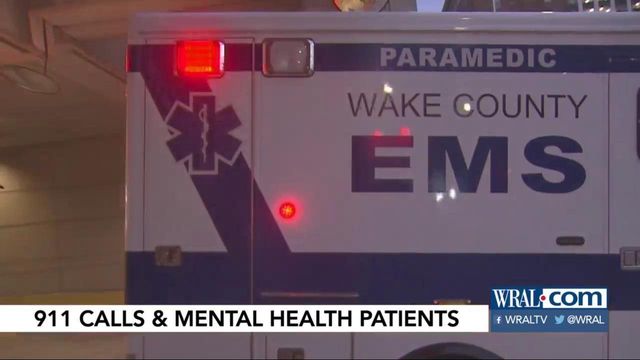Mental health experts will help authorities respond to crises under pilot program
A program to help first responders better understand how to interact with people in a mental health crisis is expected to launch this spring in Wake County.
Posted — UpdatedA program to help first responders better understand how to interact with people in a mental health crisis is expected to launch this spring in Wake County.
For more than 30 years, Jeff Hammerstein has been responding to people during their most desperate times. For a long time, he said the hospital or jail were the only two options.
“But now we can bring it to the next level through this pilot and actually have trained clinicians in mental health care respond directly to the scene,” he said.
County leaders voted to earmark $850,000 for the pilot program to pair together mental health experts and first responders.
Fonda Bryant says the program is exactly what she needed years ago.
“Valentine’s Day 1995, it will be 24 years that I almost died by suicide,” she said.
Bryant’s family called the police and the interaction was volatile.
“I’m not violent, but I scratched him, and when I scratched him, he grabbed me by the back of my neck. He shook it really hard, he threw me in handcuffs,” she recalled. “When we’re in a crisis, we can’t always relay what’s going on because our brain is not functioning the way it’s supposed to.”
Bryant, now a board member for the National Alliance of Mental Illness, said mobile crisis evaluation can save lives.
Under the current system in Wake County, emergency crews are requested, the person is evaluated, and two options- jail or a hospital- are available. Under the pilot program, the mobile crisis evaluation is added, as well as alternative solutions.
Hammerstein said the need is supported by research, including a one year study of more than 200 calls in Wake County.
“We found about half of those, there was some type of potentially suicidal ideation or mental health crisis or something of that sort, and then quite a few of them also dealing with some form of addiction,” he said.
Other county budgeting includes school-based mental health programs and behavioral urgent care facilities.
Related Topics
• Credits
Copyright 2024 by Capitol Broadcasting Company. All rights reserved. This material may not be published, broadcast, rewritten or redistributed.






